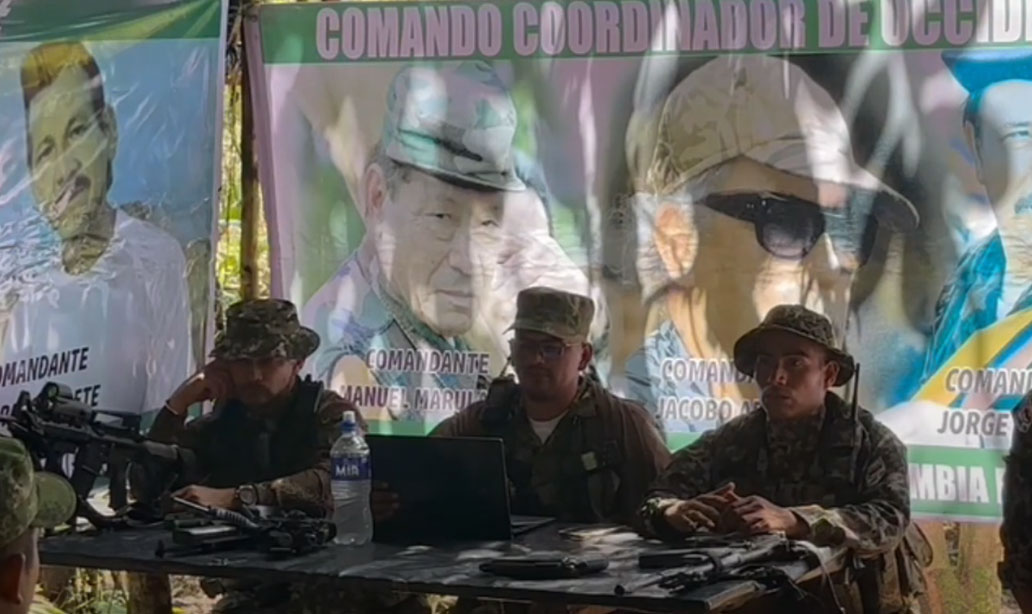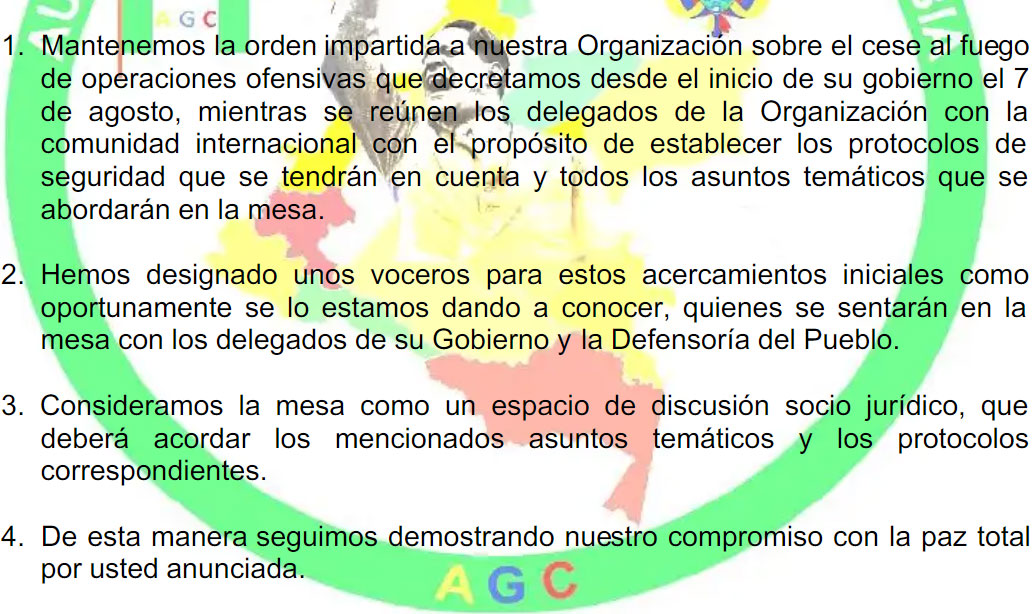Contrary to claims made by President Gustavo Petro, Colombia’s government has made no ceasefire agreements with any illegal armed group.
Petro said on Saturday that “we have agreed a bilateral ceasefire” with guerrilla group ELN, paramilitary organization AGC, two groups formed by dissidents of the now-defunct guerrilla group FARC and drug trafficking organization “Los Pachenca until the end of June.
The president on Wednesday ordered the military to resume attacks against the ELN after the guerrilla group said they never agreed to a bilateral ceasefire.
On that same day, however, Peace Commissioner Danilo Rueda suggested that none of the illegal armed groups had formally agreed to a uphold a bilateral ceasefire with the government.
Petro just suspended military operations after the illegal armed groups agreed to unilaterally suspend attacks and appoint delegates for talks.
The ELN, which is holding separate peace talks, was never involved in this process.
Colombia’s ELN guerrillas deny bilateral ceasefire pact
Only “Southeastern Bloc” confirms bilateral ceasefire
In a statement, Rueda said that the government delegates had only sat down with representatives of FARC dissident group “Southeastern Bloc,” which subsequently declared a unilateral ceasefire on December 24, which would end on Monday.
Rueda reportedly had been in contact with FARC dissident group “Segunda Marquetalia, the AGC and Los Pachenca, who had agreed to an “exploratory phase” proposed by the peace commissioner in December.
Petro’s ceasefire was “mainly a response to communities and social organizations asking for peace in this regions,” said Rueda.
In a statement that became public on Thursday the FARC dissident group confirmed they would “commit to the bilateral ceasefire,” but added that such agreements “must be ratified through the construction of a route that mainly involves the actors in the conflict.”
AGC
On December 26, the peace commissioner said that the AGC was one of the illegal armed groups that had agreed to the “exploratory phase” in which “I asked them not to kill, torture or [forcibly] disappear anyone.
In a December 30 statement, the AGC that the paramilitaries would “maintain the order that was issued to our organization about the [unilateral] ceasefire… we decreed” in August last year.
The AGC has been accused of violating their August ceasefire, particularly in the central Antioquia and Santander provinces.
In their latest pamphlet, however, the paramilitaries announced that also designated delegates “who will sit down at the table with delegates of the government and the Ombudsman’s Office” as requested by Rueda.
Segunda Marquetalia
Like the AGC, the Segunda Marquetalia allegedly declared a unilateral ceasefire after agreeing to the exploratory phase with the government, Rueda said on December 26.
In a video message that was published on December 27, a unit of the Segunda Marquetalia reiterated their “absolute and strict determination to take part in the ‘Total Peace’ process” of the government and called on the Southeastern Bloc to negotiate a bilateral ceasefire between the rival guerrilla groups.
In a December 30 press release, the central command of the FARC dissident group said that “we agree to silence the rifles” in order to “choose the best way to peace” and announced the names of three delegates for its “eventual peace negotiation with the government, once the exploratory talks are concluded,” implying that they would be willing to comply with Petro’s bilateral ceasefire.
Los Pachenca / ACSN
Also Los Pachenca apparently agreed to Rueda’s request to diminish violence and have “ratified their commitment to the bilateral ceasefire,” which would significantly reduce violence in the Caribbean region where they have been at war with the AGC.
The group had already asked one of the former commanders of the now-defunct paramilitary organization AUC to be their intermediary in talks with the government ahead of the peace commissioner’s “exploratory phase” request.





